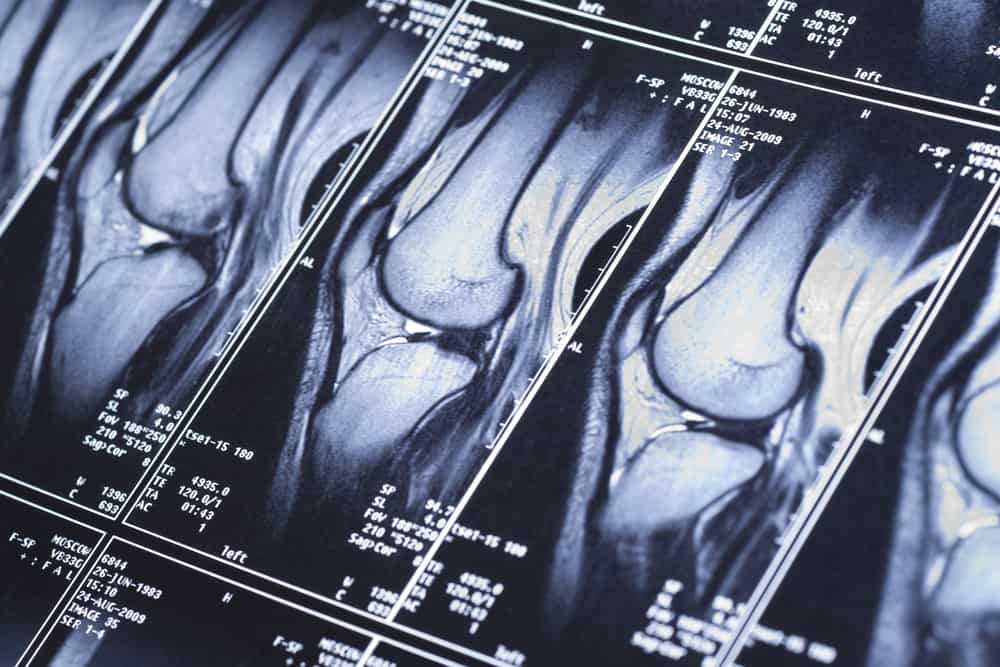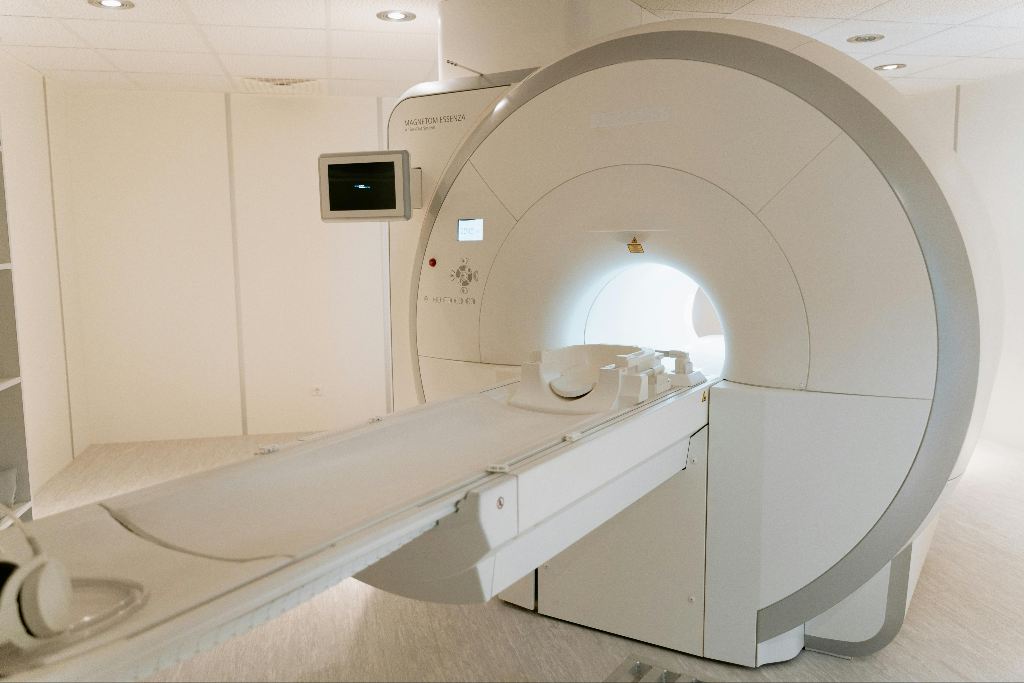¿Sabías que el dolor de rodilla es uno de los problemas de salud más frecuentes que hacen que muchos pidan cita con un médico especialista en rodillas? Esto se debe a que el dolor de rodilla puede afectar a todos los aspectos de tu vida diaria, desde caminar y hacer ejercicio hasta sentarte y estar de pie. La rodilla es una articulación fuerte que soporta el peso de la mayor parte del cuerpo y experimenta un desgaste importante a lo largo de la vida. La buena noticia es que, por lo general, el dolor y las lesiones de rodilla son bastante tratables cuando se abordan desde el principio, y una forma de empezar con el tratamiento es haciéndote una resonancia magnética de la rodilla.
¿Qué es exactamente una resonancia magnética?
Resonancia magnética es un tipo de tecnología de diagnóstico por imagen que permite al médico obtener exploraciones e imágenes detalladas de las zonas afectadas. La máquina de resonancia magnética funciona de forma similar a una radiografía, pero a diferencia de ésta, que sólo muestra imágenes de los huesos, la resonancia magnética también permite a los médicos ver músculos, tendones, ligamentos, tejidos blandos y cartílagos. Las resonancias magnéticas pueden ayudar a tu médico a descartar determinadas lesiones o problemas, al tiempo que determinan el diagnóstico más preciso.
Por qué podrías necesitar una resonancia magnética de rodilla
Hay varias razones para experimentar dolor en la articulación de la rodilla. Una lesión en la rodilla es un ejemplo obvio de por qué puedes necesitar una resonancia magnética. Sin embargo, también hay otros problemas que pueden producirse en la rodilla, como la rotura de tendones o ligamentos, la artritis, una infección o incluso una fractura ósea. Además de sentir dolor en la rodilla, otros indicios frecuentes de que debes buscar tratamiento médico son la hinchazón alrededor de la rodilla o la dificultad para soportar peso.
El cartílago que separa y amortigua los huesos de la articulación de la rodilla puede desgastarse con el tiempo y el uso excesivo, y el dolor que sientes puede deberse al roce de los huesos entre sí. La torsión de la rodilla, también conocida como esguince, puede someter a tensión a los tendones de la rodilla e incluso provocar un desgarro, lo que provocaría importantes molestias. Dependiendo de la lesión o el problema que estés experimentando, es posible que tu médico quiera programar una resonancia magnética para poder obtener una imagen más detallada de lo que ocurre en la zona de la rodilla.
Cómo prepararse para una resonancia magnética
A diferencia de otros procedimientos médicos, por lo general se te permite comer, beber y tomar cualquier medicamento prescrito como de costumbre antes de una resonancia magnética. Probablemente te recomendarán que lleves una bata o ropa suave y holgada, sin cremalleras ni ojales metálicos. En la máquina de resonancia magnética no se permite ningún metal, incluidas joyas, metal en la ropa, audífonos o incluso gafas, porque utiliza imanes potentes para producir las imágenes. Es importante que informes a tu médico si tienes algún implante metálico o dispositivo médico en el cuerpo antes de someterte a la prueba. Además, si tienes antecedentes de claustrofobia en espacios reducidos, es mejor que se lo comuniques al médico de antemano para que pueda ofrecerte algún medicamento que calme tus nervios.
¿Qué ocurre en una resonancia magnética?
La máquina de RM parece un gran tubo hueco y te tumbarás en una camilla que se desliza dentro de la estructura. Específicamente para una resonancia magnética de rodilla, es probable que entres con los pies por delante y, en general, puedes esperar que la mitad inferior de tu cuerpo esté dentro del tubo. Es importante prever que la exploración durará entre 30 y 90 minutos, dependiendo de los tipos de exploraciones e imágenes que solicite tu médico. Durante la prueba de RM en sí, se te pedirá que permanezcas muy quieto mientras se realiza la exploración. Un técnico estará en una sala contigua y hablará contigo a través de un micrófono bidireccional para guiarte durante el proceso y responder a cualquier pregunta o duda que puedas tener durante la experiencia.
A veces tu médico puede solicitar una resonancia magnética con contraste, lo que significa que te inyectarán un colorante antes de la resonancia magnética. Este colorante proporcionará un mayor contraste en las imágenes producidas por la resonancia magnética, de modo que tu médico pueda obtener más información sobre la zona afectada. El colorante puede ayudar a dar más claridad a una zona concreta de la rodilla. Tu médico y el técnico de la resonancia magnética hablarán contigo en detalle si y cuándo un colorante de contraste forma parte de la resonancia magnética de la rodilla.
Tras la RMN de rodilla, un radiólogo y tu médico revisarán los resultados de la RMN antes de comunicártelos. Tu médico puede tardar 24 horas en recibir los resultados y es probable que acudas a una cita de seguimiento en una o dos semanas para comentar los resultados de la resonancia magnética de rodilla y sus implicaciones en tu plan de tratamiento. La resonancia magnética de rodilla proporcionará a tu médico una cantidad importante de información y podrá elaborar un plan de tratamiento individualizado que aborde el dolor, resuelva cualquier lesión y ayude a curar y restaurar la zona para que puedas volver a realizar tus actividades cotidianas. Llámanos hoy mismo para saber más.





